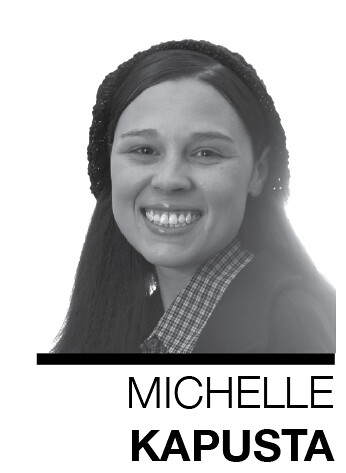As students reach higher levels of academia, cheating can become more common, which is a copout for intelligent minds.
Cheating has been going on at universities across the United States for as long as anyone can remember, but what’s surprising are some students’ nonchalant attitudes toward this behavior and uncertainties about what even constitutes cheating.
Any way you slice it, cheating is unacceptable. And while students may instantly benefit from cheating with high marks, in the long term, cheating can have determinative and devastating effects on their careers.
Students surveyed by the Josephson Institute more than a decade ago might be realizing this now.
The institute, a nonprofit that aims to improve societal ethics, surveyed 20,829 middle and high school students. The students said they believed cheating was no big deal – the survey showed 70 percent of high school students admitted to cheating in the previous 12 months, and 45 percent agreed students have to lie or cheat to succeed.
On Oct. 2, 2006, the Denver Post reported on a study completed at Penn State, Washington State and Rutgers universities, which found cheating to be prevalent among undergraduate students but discovered “nobody cheats more than people working on their MBAs.”
Almost 60 percent of MBA students admitted to cheating on tests or stealing another’s work for their thesis.
It is puzzling that such a high percentage of MBA students cheat. These students are supposed to be among the best and the brightest, so why do they do it?
“From what I have seen, low-motivated students tend to cheat the least because cheating takes more effort than simply not doing the work at all. High-achieving students tend to cheat for a competitive advantage as they strive to get ahead,” psychologist Carl Pickhardt said in a June 27, 2009 issue of Psychology Today.
Some students at the university level have a competitive nature, which draws some to cheat when they start doubting their abilities. But the root of the problem is some students have their own definitions of cheating.
“Being subtle during an exam with a cheat sheet under your desk or notes written on your hand is definitely cheating,” said a junior business major who wished to remain anonymous. “But sharing your homework with others or looking something up on the Internet is not.”
The Temple Student Code of Conduct says, “cheating includes, any unauthorized assistance in taking quizzes, tests or exams.”
Plagiarism is also mentioned in the code of conduct. So if students are unauthorized by their professor to look something up on the Internet during an exam and they do, they are cheating. Students who get to class 15 minutes early to copy a friend’s homework assignment are also cheating.
To compare with the other studies, I did my own student survey on cheating at Temple. Forty-five students were asked if they ever cheated in their academic careers, and a dominating 63.6 percent said, “No.”
When asked if they knew their instructors got tests off the Internet, would they search for the site, 53.3 percent said they would use the help.
I have a hard time believing only 63.6 percent of the surveyed students never cheated. This is not to say all the students polled were not being truthful, but 63.6 percent is not a lot, especially when I personally have witnessed a good amount of cheating at Temple.
Science is looking to bring the cheating numbers at universities down even more.
University Communications for the University of Pennsylvania reported Shaun Sims and Andrew Mills of Austin, Texas, won first place in the Milken-Penn GSE’s Education Business Plan Competition at Penn’s Graduate School of Education for “Digital Proctor.” Digital Proctor is a software program that can analyze student behavior and suspicious activity in online classes, through keyboard usage and algorithms.
This may not completely deter students from cheating, but it can certainly help reduce it by some extent, so students can focus on bettering themselves, not just their grades.
Michelle Kapusta can be reached at michelle.kapusta@temple.edu.



Be the first to comment